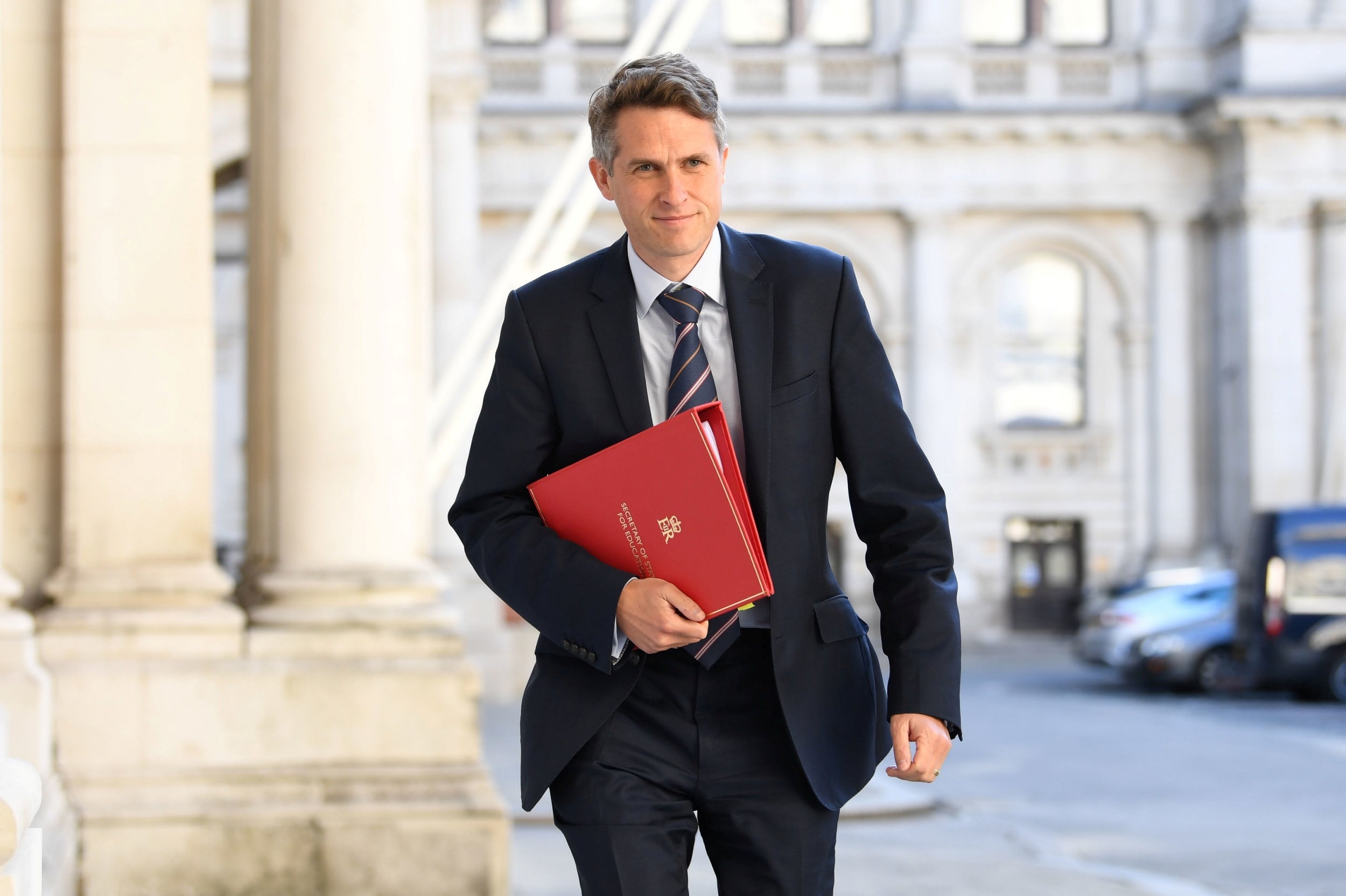How foreseeable was the A-level and GCSE fiasco, really?
Analysis: Gavin Williamson received several warnings that awarding exam grades by algorithm would lead to trouble – but he thought he’d fixed the problems, writes John Rentoul


Gavin Williamson was warned the A-level results would be a disaster, apparently. Sir Jon Coles, a former education department civil servant, wrote to him in mid-July saying the formula for awarding grades would disadvantage students from poorer families.
But we knew that the education secretary had been warned because we saw it happen. He watched, along with the rest of us, as the cautionary tale of John Swinney, his Scottish counterpart, unfolded the week before.
What matters is not whether Williamson was warned about what would happen to A-level results – and the similar fate that could befall GCSE results – but what he did about it. To be fair to him, he did the right thing. He asked Ofqual, the independent body that supervises exams, what the hell was going on.
He asked them in early July, when the education select committee, chaired by Robert Halfon, the independent-minded Conservative MP, raised its concerns. He asked them when Sir Jon wrote his letter. And he asked them when Swinney, having been accused of allowing poorer students’ grades to be marked down more than those of richer ones, abandoned the algorithm designed by Ofqual’s Scottish equivalent and said that teachers’ estimated grades should stand.
On each occasion, Ofqual assured Williamson that it was on top of it. Ofqual’s bosses pointed out that, overall, pupils from “lower socioeconomic status” families improved their grades (compared with last year) by more than those from better-off backgrounds. This was true, but overlooked the problem that private school students did better than average and FE college students did worse.
Then, when a grade A* stooshie broke out in Scotland, Ofqual told Williamson that it wouldn’t happen in England, because its formula was based on more information than the Scottish version. Even so, Williamson’s team built what they thought was a defensive wall, devising a triple lock that would allow students to use their mock exam grades or sit the exam in October if they weren’t happy with their grade.
That was designed to deal with the problem of unfair individual grades, but the defensive wall collapsed within days as the weight of injustice overwhelmed it.
So the question is not “was Williamson warned?” but “why did he allow himself to be reassured by Ofqual?” This is a more interesting and difficult question. Despite the single-note outrage of social and mainstream media, Williamson is not utterly useless. He is simply not as good as we have a right to expect ministers to be. He asked the right questions, but he didn’t take it to the next stage, which requires a sixth sense for trouble and a vivid imagination.
No one foresaw, until the Scottish results were published, how manifestly unfair it would seem that some students would drop two or three grades from teachers’ predictions; that some poor student would have to get a U just because that school had had a U in the past; or that no one could get an A* in a school or college that had never had one before.
Some of these problems were just about discernible through the fog of bureaucratic jargon. Halfon’s select committee, for example, repeated University College London’s warning that the formula “could” penalise “high-achievers in historically low-performing schools”. That is the one that really should have rung the alarm bells.
Then, after the Scottish U-turn, a really good minister would not have allowed themselves to be reassured by a Whitehall machine with a strong bias to thinking every problem can be fixed by clever drafting and a plausible slogan such as a “triple lock”.
Once the disaster happened, of course, it was completely obvious to every hindsight merchant in the opposition parties and in the media what went wrong. The only saving grace, from Williamson’s point of view, is that the Scottish National Party, Labour and even the DUP and Sinn Fein made the same mistakes in Scotland, Wales and Northern Ireland.
It is clear now that cancelling the exams was a big mistake – a decision taken too early, when schools were closed in March. It would have been possible to hold exams while observing social distancing. The exams were cancelled while parliament had abandoned its sitting – something Andrew Adonis, the Labour peer, warned about at the time. It would have been better if MPs could have asked awkward questions, although there is no guarantee that they would have asked the right ones.
These are the hardest questions of contemporary history: should the problems of the poll tax, or Iraq, or of abolishing exams, have been foreseen? I think the answer is yes in each case, but we ought to recognise that it takes exceptional ability to see some things that later seem totally obvious.
Join our commenting forum
Join thought-provoking conversations, follow other Independent readers and see their replies
Comments
Bookmark popover
Removed from bookmarks